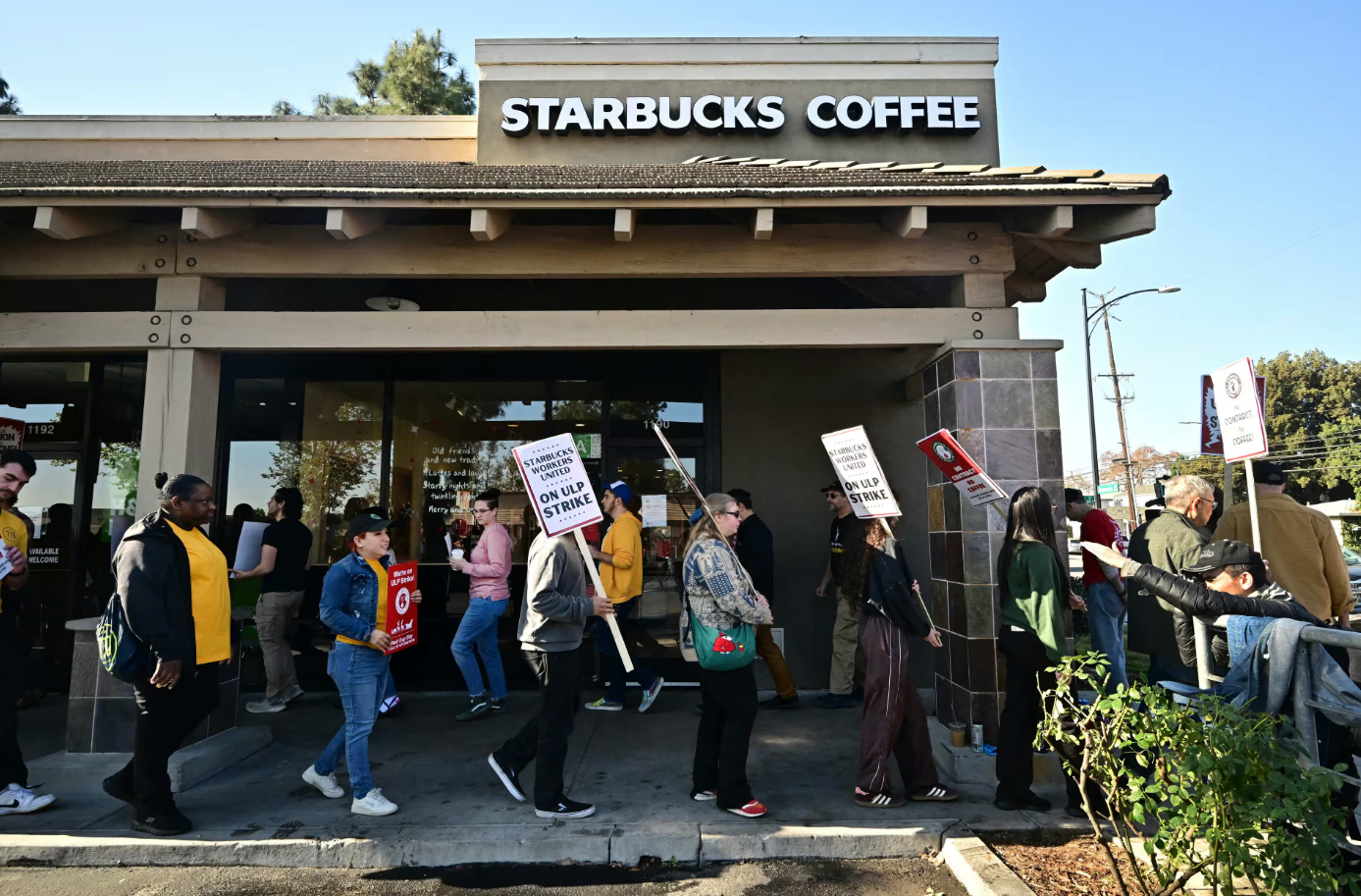Walkouts have caused nearly 50 stores nationwide to close in five days, says Starbucks Workers United union
The five-day strike from the Starbucks workers’ union has grown to include locations in at least 11 states.
As of Sunday, the strike had caused “almost 50 stores nationwide” to close after it began, according to a statement provided by the union.
The strike started with baristas walking off the job in Los Angeles, Chicago and Seattle on Friday. It has since expanded into Denver; Columbus, Ohio; and Philadelphia.
Other locations are: New York City; Boston; Texas’s Dallas-Forth Worth area; and Portland, Oregon, according to a written statement provided by the union.
“Walkouts are expected to continue surging through Christmas Eve,” Starbucks Workers United said. “The final days before Christmas are traditionally one of Starbucks’ busiest customer traffic times of the year.”
The union told CNN that the strike could reach “hundreds” of stores by Tuesday.
In a statement provided to the Guardian, a Starbucks spokesperson, Phil Gee, said: “The few disruptions we have experienced this week have had no significant impact to our store operations.
“Only a small handful of our US stores have been impacted,” Gee said. “We respect our partners’ right to engage in lawful strike activity, and we appreciate the thousands of partners across the country who are continuing to support each other and deliver the Starbucks experience for our customers.”
Starbucks operates with more than 200,000 employees at more than 10,000 stores, according to CNN. Starbucks Workers United represents more than 10,500 workers at more than 500 stores, according to their website.
In a statement on X, the union wrote on Thursday: “Starbucks baristas are going on five days of escalating [unfair labor practice] strikes in response to the company backtracking on our promised path forward.”
The union wrote that it hoped to reach an agreement on contract negotiations before the new year – but said that Starbucks management had “yet to present workers with a serious economic proposal”.
The union added: “Starbucks proposed no immediate wage increase for union baristas, and a guarantee of only 1.5% wage increases in future years,” the union added.
Lynn Fox, the president of Starbucks Workers United, said in a written statement: “We were ready to bring the foundational framework home this year, but Starbucks wasn’t.
“After all Starbucks has said about how they value partners throughout the system, we refuse to accept zero immediate investment in baristas’ wages and no resolution of the hundreds of outstanding unfair labor practices,” Fox said. “Union baristas know their value, and they’re not going to accept a proposal that doesn’t treat them as true partners.”
In his written statement to the Guardian, Gee said: “Workers United delegates prematurely ended our bargaining session this week. It is disappointing they didn’t return to the table given the progress we’ve made to date.”
But the Starbucks spokesperson said that proposals from the union and received by management “call for an immediate increase in the minimum wage of hourly partners by 64% and by 77% over the life of a three-year contract”.
“This is not sustainable,” Gee said.
Nonetheless, Gee also said: “We are ready to continue negotiations to reach agreements. We need the union to return to the table.”
Starbucks Workers United issued a statement on behalf of Fatmeh Alhadjaboodi, a bargaining delegate and five-year barista, saying: “Nobody wants to strike. It’s a last resort, but Starbucks has broken its promise to thousands of baristas and left us with no choice.
“In a year when Starbucks invested so many millions in top executive talent, it has failed to present the baristas who make its company run with a viable economic proposal and resolve the pending unfair labor practices.”




